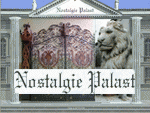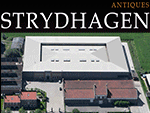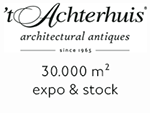|
Portrait of Anne of Austria (1601-1666) infant of Spain, archduchess of Austria, princess of Burgundy and princess of the Netherlands, queen of France and Navarre, wife of Louis XIII, daughter of King Philip III, king of Spain.
Oil on canvas, France around 1635
Atelier of Philippe de Champaigne (1602 - 1674)
Frame in carved, waxed and gilded Dutch oak, with stylized acanthus leaf decorations.
Measures 72 cm X 64 cm
Restored with only superficial cleaning.
Dressed in immeasurable beauty, with silky curls that fall into a mother-of-pearl-colored décolleté, a dress of soft silk accentuated by an embroidered jewel that seems not to end and emerge from the canvas, her big eyes look at us, her lips tinted with strawberry color. entice you to look back. Portrayed half-length with all her charm, a beauty of yesteryear but completely current, she appreciates her simplicity of posture, accomplice of the skilful chiaroscuro that brush strokes have brought out.
Words are inexpensive to describe the emotion, the vibration of a detail, the purity, the elegance of our queen of France and Navarre.
Philippe de Champaigne (1602 - 1674)
Born in Brussels, he settled permanently in Paris in 1621. A pupil of the painters Jean Bouillon and Michel de Bordeaux (from 1621), he trained together with Jacques Fouquières and Nicolas Poussin, to whom he always remained close from deep friendship. He had as a pupil his nephew Jean-Baptiste de Champaigne, who joined him in Paris from Brussels in 1643 and worked with him on the decorations of various royal apartments.
Already in the early years of his career he abandoned both the first baroque trends, the result of his early artistic education, and the influences of Rubens, to orient himself towards a more measured style, color and figurative structure.
In 1628 he entered the service of Queen Mother Maria de 'Medici, who entrusted him with the pictorial decoration of the Luxembourg Palace: at court he was able to have his work appreciated by Cardinal Richelieu, of whom he became the favorite artist and who entrusted him with decorations in his private residence and in the seat of the Sorbonne, and in Louis XIII, for whom he painted several paintings; He also made six canvases for the Carmelites of Faubourg Saint-Jacques in Paris.In these works, Champaigne developed his proverbial rigorous simplification, characterized by an orderly naturalism, a hieratic fixity of the characters and an almost frontal perspective of the faces. After the premature loss of his wife and some of his children he turned more to religion and began to frequent the Jansenist circles. He became the painter of Port-Royal, where his last daughter had also retired who, on the occasion of her miraculous recovery, he represents together with the Mother Superior Agnès Arnauld in the Ex voto painting (1662), considered his masterpiece (Musée du Louvre).
- A certificate of origin and authenticity, valid according to European law on artistic and valuable goods, will be issued to the buyer.
This legally valid document brings an additional guarantee to our portrait.
Sergio Schina
Antiques dealer / Collector
Villa Stampanoni Manfredini Fiaschi
|




































